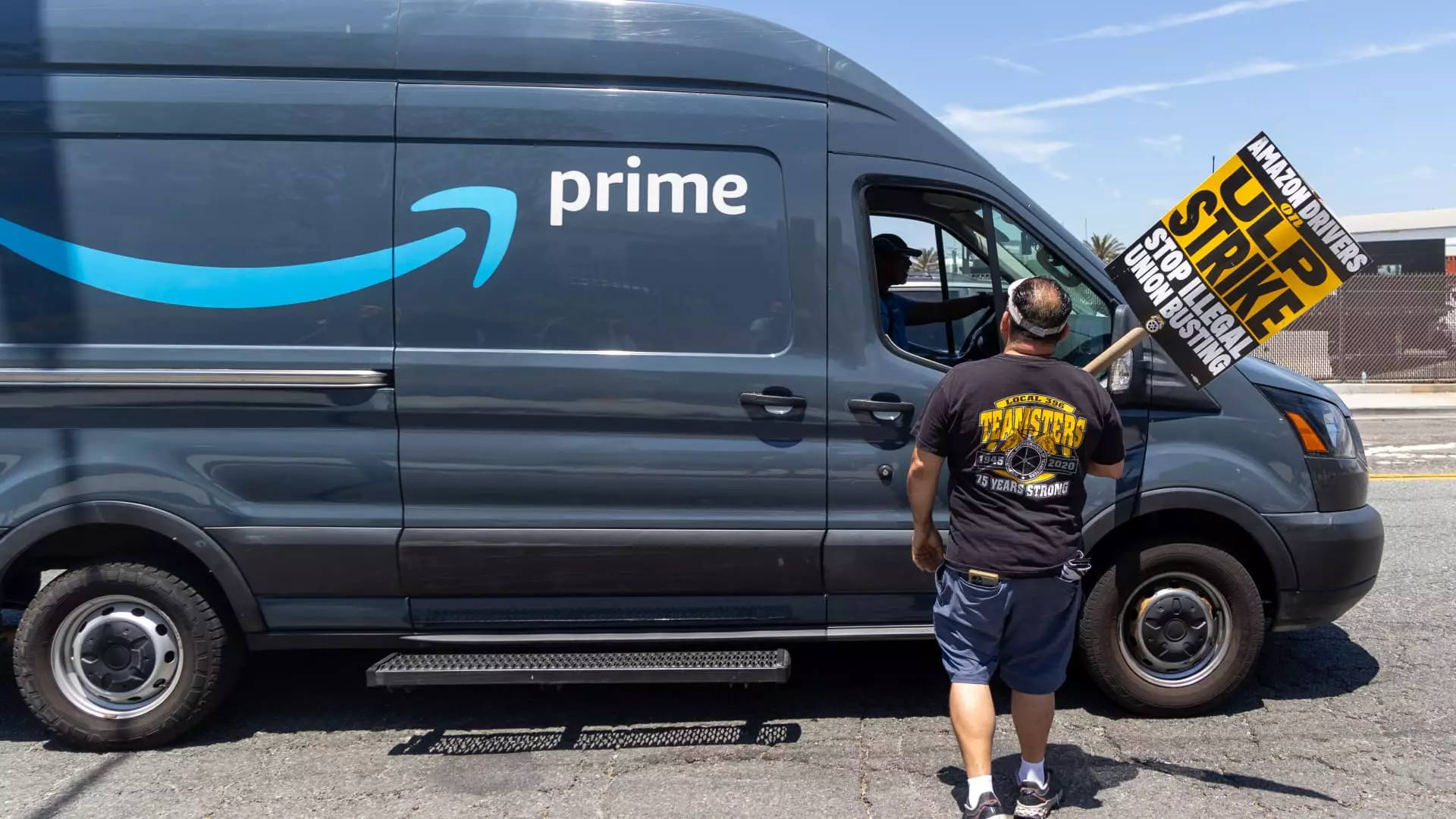In a recent decision made by a regional director for the National Labor Relations Board (NLRB), it was determined that Amazon should be considered a “joint employer” of a group of its contracted delivery drivers. This decision came after two unfair labor practice charges were filed in January regarding the treatment of drivers at an Atlanta warehouse known as DAT6. Despite Amazon’s history of hiring third-party drivers to manage its increasing volume of deliveries, the NLRB’s regional director concluded that Amazon jointly employed drivers at the site who were working for a contractor called MJB Logistics. This ruling challenges Amazon’s stance on not being a joint employer of its vast network of contracted delivery companies.
The NLRB’s determination that Amazon is a joint employer of some delivery drivers could have significant implications for the company. If Amazon is classified as a joint employer, it may be required to engage in collective bargaining with employees who are seeking to unionize. This decision could potentially open the door for more organized labor within Amazon’s workforce, which has been a goal for groups like the Teamsters union.
The Teamsters union has been actively involved in organizing Amazon delivery and warehouse workers, with a specific focus on supporting and funding their efforts to unionize. The establishment of an Amazon division within the union in 2021 has allowed for increased coordination and resources to be dedicated to these organizing initiatives. This push for unionization has resulted in strikes at various Amazon delivery facilities and an affiliation with the Teamsters by a labor group at an Amazon warehouse in New York’s Staten Island.
Amazon has faced challenges in dealing with allegations of unfair labor practices and anti-union behavior. In a specific case in April 2023, drivers working for Battle Tested Strategies claimed that Amazon canceled their contract after they voted to unionize with the Teamsters. While Amazon denied these claims, the NLRB’s recent ruling in Atlanta highlights additional concerns such as threats of closing the site if drivers unionized, coercive statements, and potential surveillance at the facility. It is evident that Amazon’s treatment of its contracted delivery drivers is under scrutiny by both labor groups and regulatory bodies.
The NLRB’s recent determinations in both Atlanta and Palmdale are just the initial steps in the agency’s process of litigating allegations of unfair labor practices. If the parties involved do not reach a settlement, a hearing will be scheduled with an NLRB judge. Subsequent appeals can be made to the NLRB board and even federal court. The outcome of these legal proceedings could have far-reaching consequences for Amazon and its contracted delivery drivers, as well as impact the broader landscape of labor relations within the company.
The NLRB’s ruling that Amazon is a joint employer of certain delivery drivers underscores the ongoing challenges faced by the company in its labor practices. The need for collective bargaining and fair treatment of workers is a critical issue that has far-reaching implications for Amazon, its employees, and the broader labor movement.

